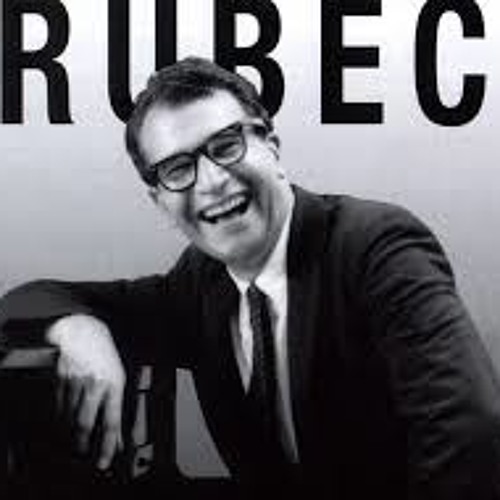

Out of this experience grew the Dave Brubeck Trio, with drummer Tjader and bassist Ron Crotty. The band's public performances numbered just four: two 1946 concerts at Mills College, a gig opening for Woody Herman in San Francisco the following year and one final appearance in '48 at Dave's former college, the COP in Stockton (a number of recordings were made on acetate and were released in various forms a few years later). They rehearsed often, applying classical structure to the modern jazz style. In 1950, the Octet included Desmond and Brubeck, clarinetist and baritone saxophonist Bill Smith, tenor saxophonist David van Kriedt, trumpeter Dick Collins, trombonist Bob Collins, bassist Jack Weeks and a drummer that would one day be a major jazz star specializing in Latin percussion, Callen "Cal" Tjader. Eventually they became known as The Dave Brubeck Octet. At school, Dave became part of a cavalier bunch of student experimenters who called themselves "The 8." Like him, they were interested in stretching the rhythmic and harmonic boundaries of music, if for no other reason than to see where it might lead. Opportunities arose for him to sit in as pianist with a few San Francisco area jazz bands one was called The Three D's and sometimes featured alto saxophonist Paul Desmond, who'd been playing clubs around the area. After his discharge in the mid-'40s, he attended Mills College in Oakland and studied under French composer and teacher Darius Milhaud. He married another student, Iola Whitlock, while on leave shortly after he'd joined the Army in 1942. But a career in music seemed unlikely as he struggled through music courses, as a result of his vision, at the College of the Pacific in Stockton. As a result of some early eyesight problems, Dave never learned to properly read music, admitting to often "faking it."ĭave liked to alter the rhythms of songs when he played piano, sometimes catching the ire of musical purists. His mother, Bessie Brubeck, a former concert pianist, gave him piano lessons when he was a youngster. To fend off boredom he would make up melodies, using the rhythm of the ranch (galloping horses, the sounds of machinery and so on) as inspiration. During his teenage years he was a ranch hand, working for his father, Pete Brubeck, in the San Joaquin Valley. Born in 1920 in Concord, California, he possessed a natural rhythm. Notable covers have been performed by George Benson, Quincy Jones, Tito Puente with George Shearing, Stevie Wonder, The Specials and Rodrigo y Gabriela.Musically speaking, timing was everything to Dave Brubeck. There are more than 300 recorded versions of this song. Upon his death, Desmond left the royalties to performances of many of this compositions,including “Take Five,” to the American Red Cross. “Take Five” appeared in an episode of The Sopranos and in the 2007 film Flawless. In a 1976 concert in Germany, Al Jarreau performed a scat version of the tune.

The Dave Brubeck Quartet recorded various versions of the song, including another 1961 version featuring lyrics written by Brubeck and his wife Iola, sung by Carmen McRae. “Take Five” achieved popularity after it was re-released as a shorter single in May 1961, climbing to #25 on the Billboard Hot 100 list and #5 on their Easy Listening chart. While it wasn’t the first jazz song composed in this meter, it became one of the most popular of its time. “Take Five” was composed in 5/4 time, hence the name. Tune in today as we celebrate Jazz Appreciation Month with some of this compositions most notable covers!ĭuring a tour of Europe and Asia, Brubeck was struck by a group of Turkish street musicians playing a folk song in 9/8 time – also known as “Bulgarian meter” - and was inspired to create an album that deviated from the standard 4/4 time. The tune was first performed live in 1959 at the Village Gate club in New York City. The original recording band included Brubeck on piano, Desmond on alto saxophone, Eugene Wright on bass and Joe Morello on drums. Composed by Paul Desmond, “Take Five” was first recorded by the Dave Brubeck Quartet for their 1959 album Time Out.


 0 kommentar(er)
0 kommentar(er)
